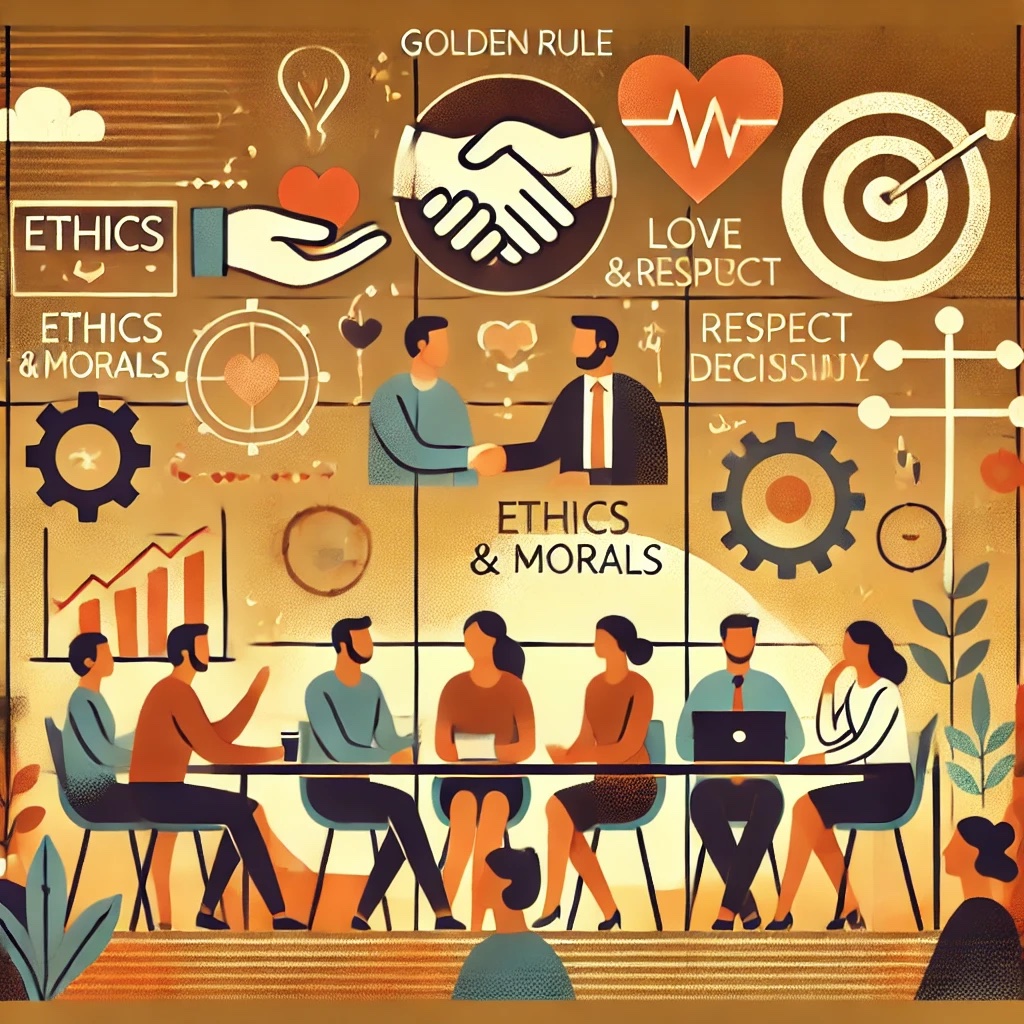In a world increasingly characterized by complexity and moral ambiguity, the principles of ethics and morals serve as guiding lights for personal conduct and decision-making. At the heart of many ethical frameworks lies the Golden Rule: “Love your neighbor as yourself” and “Do unto others as you would have them do unto you.” These timeless principles emphasize empathy, respect, and the intrinsic value of each individual, offering a foundation for a more just and compassionate society.
Understanding the Golden Rule
The Golden Rule has roots in various cultures and religious traditions, making it a universal tenet that transcends boundaries. In Christianity, it appears in the New Testament (Matthew 7:12), while similar sentiments can be found in the teachings of Confucius, Buddhism, and Islam (Newsroom | Accenture)(Stock Analysis). By encouraging individuals to consider the feelings and experiences of others, the Golden Rule promotes a mindset of mutual respect and understanding.
In practical terms, the Golden Rule provides a simple yet powerful framework for ethical decision-making. When faced with a dilemma, reflecting on how one’s actions may affect others can lead to more thoughtful and compassionate choices. For instance, in the realm of business ethics, leaders who embrace this principle are more likely to prioritize the well-being of employees, customers, and stakeholders, fostering an environment of trust and collaboration.
The Role of Ethics and Morals in Society
Ethics and morals are not just personal choices; they play a crucial role in shaping societal norms and expectations. Societies that prioritize ethical conduct and moral integrity tend to experience greater social cohesion, lower levels of corruption, and increased trust in institutions. According to a study by the Ethics & Compliance Initiative, organizations with strong ethical cultures report higher employee satisfaction and retention, as well as improved performance.
Furthermore, embracing ethical principles can have far-reaching implications for social justice. By promoting fairness and equity, the Golden Rule can inspire individuals to advocate for marginalized communities and challenge systemic injustices. As noted by philosopher Peter Singer, “The principle of equal consideration requires that we give equal weight to the interests of all beings affected by our actions” . This perspective encourages a broader understanding of ethical responsibilities beyond mere human interactions, extending to animals and the environment as well.
Challenges to Upholding the Golden Rule
Despite its simplicity, applying the Golden Rule can be challenging in practice. Individuals often grapple with competing interests, cultural differences, and contextual factors that complicate ethical decision-making. In corporate settings, for example, profit motives may clash with ethical considerations, leading to difficult choices that can harm stakeholders.
Moreover, the prevalence of social media and online interactions has transformed how we engage with one another, sometimes leading to behaviors that contradict the Golden Rule. Cyberbullying and online harassment are stark reminders of the need to cultivate empathy and respect in all interactions, both virtual and face-to-face.
Cultivating an Ethical Mindset
To truly embrace the principles of the Golden Rule, Iconet actively cultivate an ethical mindset. We are achieving this through various means:
1. Education and Awareness: Iconet implements ethics training programs that help individuals recognize the importance of ethical conduct and develop the skills to navigate moral dilemmas effectively.
2. Open Dialogue: Icoent encourages open discussions about ethical challenges,, and by doing so, we are creating a culture of transparency and trust. When our members feel safe sharing their concerns, they are more likely to uphold ethical standards.
3. Leading by Example: Iconet leaders embody the principles of the Golden Rule to set a powerful precedent for others. By demonstrating empathy and integrity in our decisions, we inspire our teams to do the same.
4. Community Engagement: Iconet is building connections within our community to foster a sense of shared responsibility. We create initiatives that promote volunteering, mentorship, and collaboration to strengthen social bonds and reinforce ethical values.
Conclusion
In an increasingly complex world, the Golden Rule serves as a guiding principle for ethical decision-making. By embracing the ethos of “Love your neighbor as yourself” and “Do unto others as you would have them do unto you,” we can cultivate a more compassionate and just society. Upholding ethics and morals not only enhances personal integrity but also contributes to the collective well-being of our communities. As we navigate the challenges of modern life, let us strive to embody these timeless principles, fostering a culture of respect, empathy, and understanding for all.




Leave a Reply